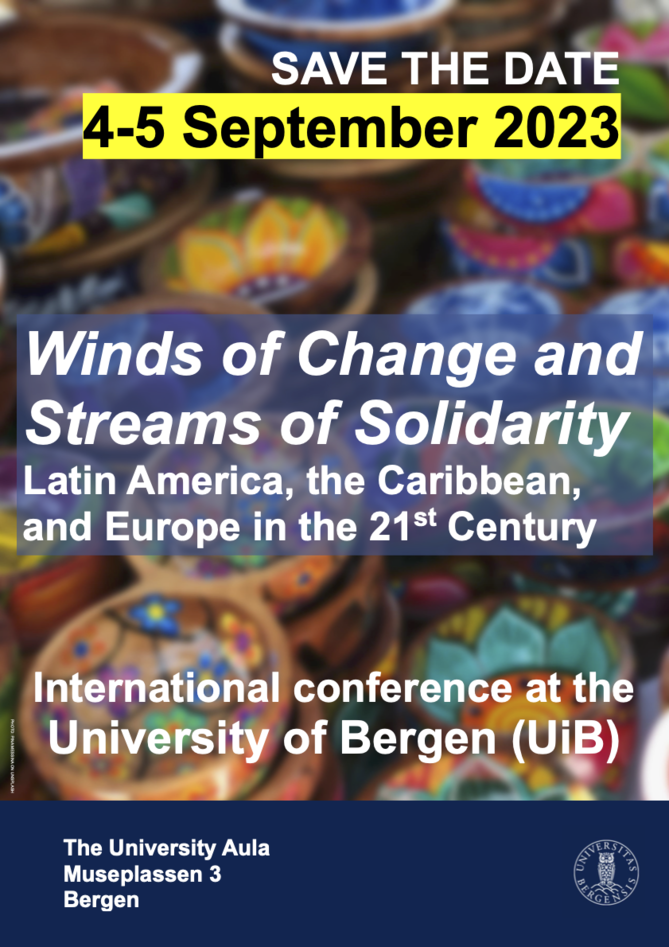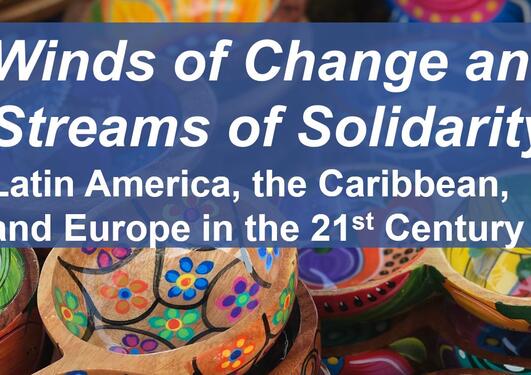Q&A Gaby Ortiz-Barreda
The UNESCO World Heritage city of Cusco leaves public health researcher Gaby Ortiz-Barreda speechless and she recommends everyone to read Nobel Literature Prize laureate Mario Vargas Llosa’s The Feast of the Goat. When she cooks the Peruvian flagship dish ceviche, it evokes in her the longing for her family – in particular her mother.

Hovedinnhold
- In this weekly series we interview the members of the programme committee for the conference “Winds of Change and Streams of Solidarity: Latin America, the Caribbean, and Europe in the 21st Century”. This is the fourth interview in the series.
1. Why should Norwegians care about what’s going on in Latin America and the Caribbean?
“We live in a globalized world, and today we know that what happens in other parts of the world will affect us somehow. Perhaps we are unaware that Norwegians are increasingly interested in Latin America. Norway is the country that has contributed the most to the Amazon Fund, whose objective is to prevent, monitor and fight deforestation in the Amazon Forest. I'm sure it's only a matter of time before our interests/ties are more visible.”
2. What can students learn from visiting Latin America or the Caribbean?
“Without a doubt, many things! Latin America is a melting pot of cultures, each with its respective customs. We have music and dances (from salsa to traditional dances) and several natural parks (e.g., Manu National Park in Peru) for nature lovers. We have diverse cultures and, of course, the language. I know that Spanish is the most popular foreign language among secondary school students in Norway. That clearly shows their interest in Hispanic and Latin American cultures.”
3. What is your favourite place in Latin America and the Caribbean, and why?
“My favourite place is Cusco. It's just a wonderful place! Cusco will leave you speechless if you like adventure, ancient culture, biodiversity, gastronomy, and human warmth. From the moment you arrive in Cusco, you fall in love with the beauty of the landscape and the old buildings. You will love the cobbled and steep streets, mountains, and climate. If you can ever go to Machu Picchu, take the first bus to the citadel (4 or 5 am) and see the sunrise from there. It will be one of the most beautiful experiences (UNESCO declared Machu Picchu as humanity's cultural and natural heritage on December 9, 1983).”
4. If you should recommend one book from/on Latin America and the Caribbean, which would that be?
“This time, I will recommend a Peruvian author born in Arequipa —a colonial city named the "white city" because the houses are made of white volcano stones called "sillar"— The Feast of the Goat (2000) by Mario Vargas Llosa (Nobel Prize in Literature). The story takes place in the Dominican Republic at the time of the military dictatorship of General Rafael Trujillo, and the book narrates, from three different perspectives, how the assassination of this dictator occurred.”
5. And if you should recommend one film or movie from/on Latin America and the Caribbean, and why?
“The Milk of Sorrow (La Teta Asustada) is a Peruvian film directed by Claudia Llosa and released in 2009. It is a film that does not leave you indifferent. It focuses on the fears (known as “sustos”) of women raped during the terrorism that affected Peru in the last two decades of the 20th century. “Susto” is described in Indo-Latin American medicine as a disease that occurs in uncontrollable situations such as rape, mass murder, earthquakes, etc. There are hundreds of cases of raped indigenous Peruvian women who dared to denounce the crimes of which they were victims, both by the revolutionary movement Sendero Luminoso and the paramilitaries.”
6. What is your favourite telenovela, and why?
“I'm afraid I don't have any. I have not been a fan of soap operas.”
7. Who is your favourite music artist from Latin America or the Caribbean?
“I have many I like, Fito Paez, Mon Laferte, Natalia Lafourcade. However, I recently discovered Silvana Estrada from Mexico, who curiously sang with Aurora (a Norwegian Singer) in Mexico this year. In 2021, Silvana composed a song, “Si Me Matan”, that talks about gender violence. She makes music that sticks in your heart.”
8. When you invite Norwegians home, what dish/food from or inspired by Latin America and the Caribbean do you cook? And why is this dish/food special to you?
“We don't cook much Peruvian food at home because it's hard to find Peruvian spices for cooking. Also, because being married to a Spaniard (from Alicante), we always cook paella for friends. On a few occasions, I have been able to prepare “Ceviche” ... when I cook ceviche, it evokes in me the longing for my family, especially my mother.”
9. What is the one thing that Norwegians could learn from Latin Americans and Caribbeans?
“I've lived in this country for many years, and despite my respect for how they are, I would love it if they could express their emotions and feelings only slightly more.”


